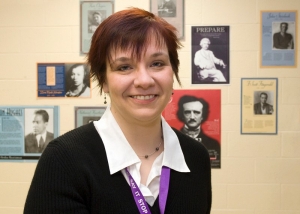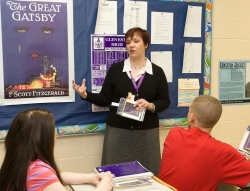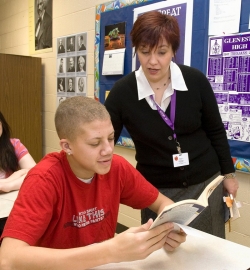by Dawn Fuller
The idea of becoming a teacher just kept beckoning.
Lisa Ellis spent 15 years practicing law in the areas of bankruptcy, real estate, probate and creditors' rights, but despite a successful career, she wasn't happy. "I didn't like the person I had to be to practice law," she says.
UC alumna Ellis, JD '91, had previously thought about leaving the profession to go into teaching, but she let her former husband talk her out of it, she says.
Every day that she was practicing law, however, the longing to be a teacher grew stronger. After all, she had read Shakespeare to kick back and relax while in law school and was proud of her full-size Oxford English dictionary. She wanted to spread and share her love of English and literature with high-school students.
Then, she found an opening. After receiving a small inheritance from her grandmother, she entered the teacher-education master's and licensure program at the UC College of Education, Criminal Justice, and Human Services (CECH). Her first day in class was on her 40th birthday in 2006. She achieved her licensure in June 2008.
But soon, the economy tanked. Schools struggled even harder to balance budgets and provide quality education, and the job market for teachers was shrinking.
"The economy just blew up in 2008, and I never in my life expected to defend teaching more than being a lawyer. But when I was looking for a job to teach English, they were hard to come by."

 Past Issues
Past Issues

